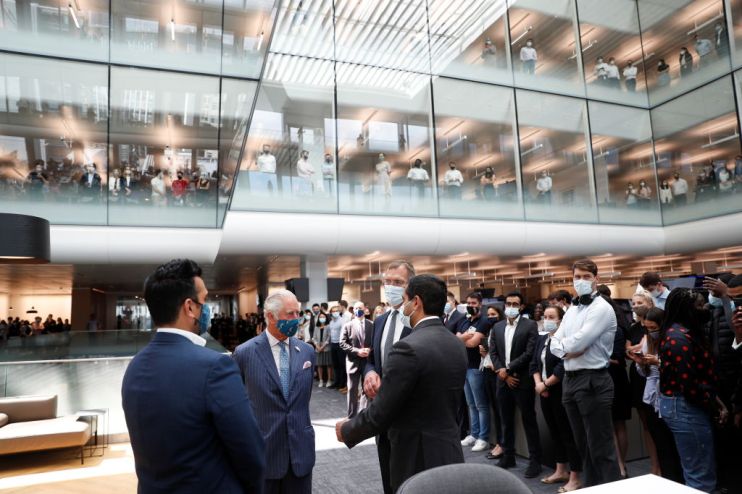Goldman Sachs boss champions post-Brexit London and expects 70 per cent of staff back in office

Goldman Sachs boss Richard Gnodde said the company was as committed to its London head office as ever, buoyed by his belief that the UK capital will remain dominant as a world-leading financial centre post-Brexit.
“For us we’ve been very clear, the centre of gravity for our workforce is our buildings, and in London it will be this building,” Gnodde told the BBC.
“We believe it’s really important to have our people together,” he added.
The bank’s employees will be required to wear masks when they return to the office on Monday, as the majority of the remaining Covid restrictions – including the government’s “work from home if you can” guidance – ease.
But in a different approach to some of its rivals, Goldman will not require its bankers to be vaccinated before returning to the workplace.
Asked whether an employee who is uncomfortable returning to the office would be forced to come in, Gnodde said: “We will not force them to come in. Our focus is going to be on creating a safe environment where people feel comfortable.”
Pressed further on whether their reluctance would lead to hardline measures from the bank, he said: “We’d look to understand the issues and what your concerns were and we’d see if we could address them.”
‘Cut bureaucracy’ to cement London’s position
The interview with Gnodde coincided with a visit from the Prince of Wales to the investment bank’s London offices to acknowledge its commitment to keeping its European headquarters in the capital after Brexit.
The US investment bank’s boss quelled ideas that London had lost its attraction after Brexit, and said it was a chance to create “new opportunities.”
“There has been some movement of assets. So you know, that has gone. And our access to the European market is not as free as it used to be. We have to build and create new opportunities.
But Gnodde used the occasion to hammer home the message that this relies upon the government and regulators having a lighter touch to keep the capital “competitive” with other countries – by cutting “some of the bureaucratic elements” of regulation.
“We put this building in place through the Brexit period and it really underscores our confidence that London will remain one of the world’s leading financial centres,” Gnodde said.
So what regulation would he ditch?
“Eliminate duplication and unnecessary excessive reporting. Let’s do what we have to do to have effective regulation. But let’s cut out some of the bureaucratic elements to enable firms to use their capital resources efficiently,” Gnodde said.
And Gnodde was realistic, acknowledging that a UK divorced from the EU was a smaller fish in the world’s business pond – but that this wasn’t necessarily a bad thing.
“Sometimes being a smaller fish is an advantage. Your level of paranoia goes up – you need to move to innovate, to create. Look over the last century and the issues that this country has been through and we’re absolutely confident that the people of Britain will take it forward again,”Gnodde said.